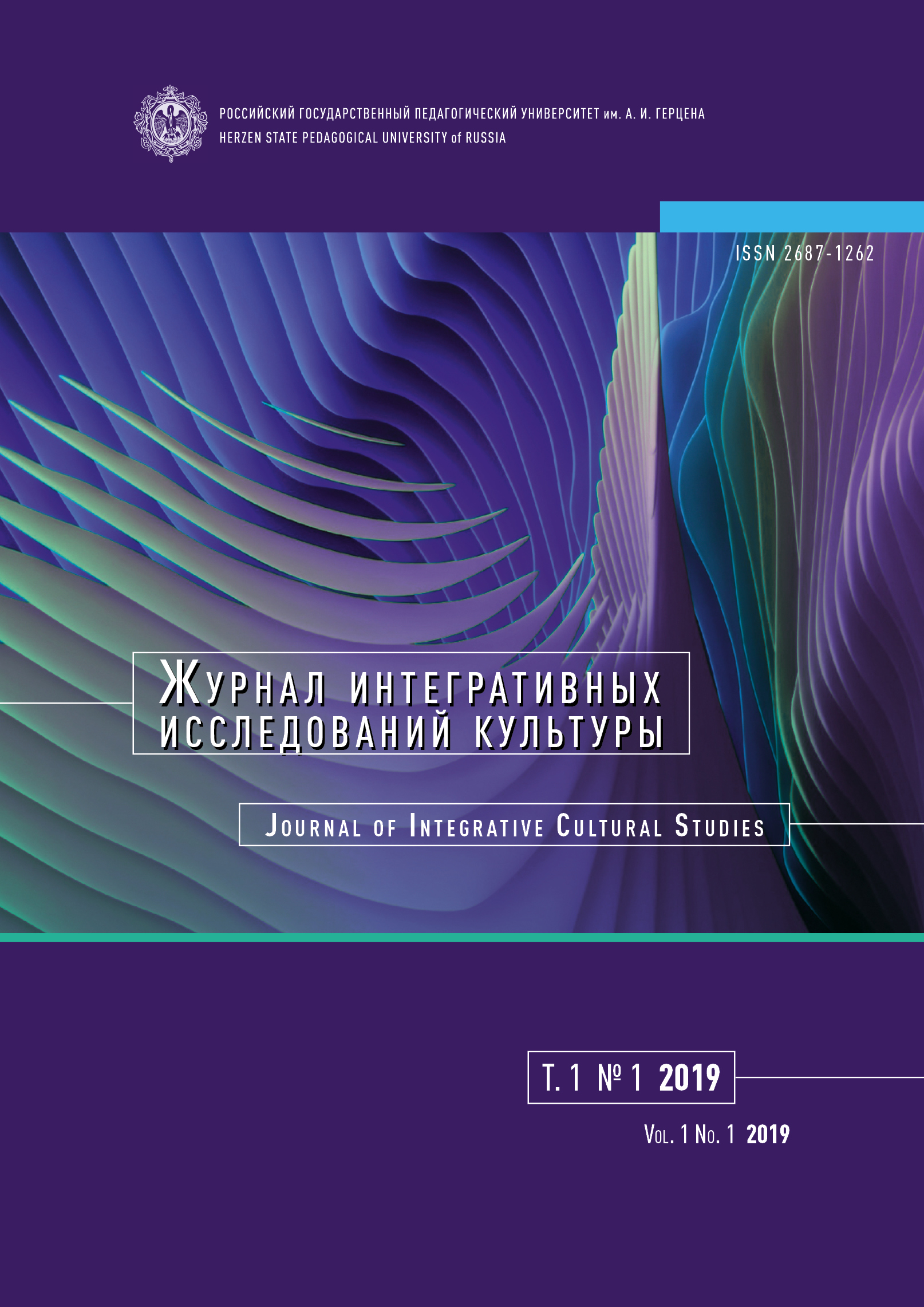The cultural concept of “deviation” and its transformation in the age of globalisation
DOI:
https://doi.org/10.33910/2687-1262-2019-1-1-15-20Keywords:
norm, deviation, subcultures, minority cultures, globalisation, aggressive behaviour, delinquent behaviour, dependent behaviour, suicidal behaviourAbstract
The article discusses the reasons for change in the semantic content of the “deviation” concept in the 21st century. The relevance of the presented material is substantiated by the deep socio-cultural transformations that are defined by the notion of “subcultural explosion”. It is this phenomenon that has radically altered the concepts of “norm” and “deviation” in modern society. The rise of minority cultures in the recent years has challenged the legitimacy of applying the definition of “deviant” in relation to certain patterns of behaviour, works of art, etc. In a “subcultural explosion” we are dealing with a gathering conflict between value systems. Each minority culture offers its own system of values and behaviours, positioning it as the only correct one. In addition, the era of globalisation stimulates the flow of migration, which, in turn, also takes the concept of “deviation” beyond the limits of scientific reflection due to the increasing mosaic-like diversity of the sociocultural space. Under these conditions, the concept of “norm” is also challenged. Based on the classification of deviant behaviour, we analyse each of its views in the context of modern culture, demonstrating the extreme degree of relativity of “deviation” as a notion. In this paper we consistently focus on such types of deviant behaviour as aggressive, delinquent, dependent and suicidal behaviour. Deviance is not merely a destructive element, but it is also an indicator of the need for change in the cultural component of society providing an alternative to social norms and expanding cultural boundaries. At present, the only type of behaviour that can be defined as deviant is that which contradicts the existing legislation. In other words, in modern culture the only “norms” that remain effective are legal norms. However, they should also be adjusted upon the demand of minority cultures until the very possibility of inequality or discrimination is excluded.
References
ЛИТЕРАТУРА
Змановская, Е. В. (2004) Девиантология (Психология отклоняющегося поведения). М.: Академия, 288 с.
Танака-Мацуми Ю. (2003) Патопсихология и культура. В кн.: Д. Мацумото (ред.). Психология и культура. СПб.: Питер, с. 423–459. (Мастера психологии).
Тоффлер, Э. (2002) Шок будущего. М.: ООО «Издательство ACT», 557 с.
Чукуров, А. Ю. (2015) Конструирование телесности как механизм самоконтроля. Общество. Среда. Развитие, № 3, с. 145–149.
Чукуров, А. Ю. (2016) Homo Lego: человек-конструктор (к постановке проблемы). Общество. Среда. Развитие, № 2, с. 72–76.
Шахал, А. (2017) Транскультурная психиатрия: критический обзор. Лаборатория интеллектуального сопротивления. [Электронный ресурс]. URL: http://laborint.ru/biblioteka/sh-amin-transkulturnaya-psihiatriya/ (дата обращения 01.07.2019).
REFERENCES
Chukurov, A. Yu. (2015) Konstruirovanie telesnosti kak mekhanizm samokontrolya [The construction of physicality as a mechanism of self-control]. Obshchestvo. Sreda. Razvitie — Society. Environment. Development, no. 3, pp. 145–149. (In Russian)
Chukurov, A. Yu. (2016) Homo Lego: chelovek-konstruktor (k postanovke problemy) [Homo Lego: the persondesigner (to the statement of the problem)]. Obshchestvo. Sreda. Razvitie — Society. Environment. Development, no. 2, pp. 72–76. (In Russian)
Shahal, A. (2017) Transkul’turnaya psikhiatriya: kriticheskij obzor [Transcultural psychiatry: a critical review]. Laboratoriya intellektual’nogo soprotivleniya [Laboratory of intellectual resistance]. [Online]. Available at: http://laborint.ru/biblioteka/sh-amin-transkulturnaya-psihiatriya/ (accessed 01.07.2019). (In Russian)
Tanaka-Matsumi J. (2003) Patopsikhologia i kultura [Abnormal psychology and culture]. In: D. Matsumoto (ed.). Psikhologiya i kul’tura [The handbook of culture and psychology]. Saint Petersburg: Piter Publ., pp. 423–459. (Mastera psikhologii [Masters of psychology]). (In Russian)
Toffler, E. (2002) Shok budushchego [Future shock]. Moscow: OOO “Izdatel’stvo AST” Publ., 557 p. (In Russian)
Zmanovskaya, E. V. (2004) Deviantologiya (Psikhologiya otklonyayushchegosya povedeniya) [Deviantology (Psychology of deviating behavior)]. Moscow: Akademiya Publ., 288 p. (In Russian)
Downloads
Published
Issue
Section
License
Copyright (c) 2019 Andrey Yu. Chukurov

This work is licensed under a Creative Commons Attribution-NonCommercial 4.0 International License.
The work is provided under the terms of the Public Offer and of Creative Commons public license Creative Commons Attribution 4.0 International (CC BY 4.0).
This license permits an unlimited number of users to copy and redistribute the material in any medium or format, and to remix, transform, and build upon the material for any purpose, including commercial use.
This license retains copyright for the authors but allows others to freely distribute, use, and adapt the work, on the mandatory condition that appropriate credit is given. Users must provide a correct link to the original publication in our journal, cite the authors' names, and indicate if any changes were made.
Copyright remains with the authors. The CC BY 4.0 license does not transfer rights to third parties but rather grants users prior permission for use, provided the attribution condition is met. Any use of the work will be governed by the terms of this license.







